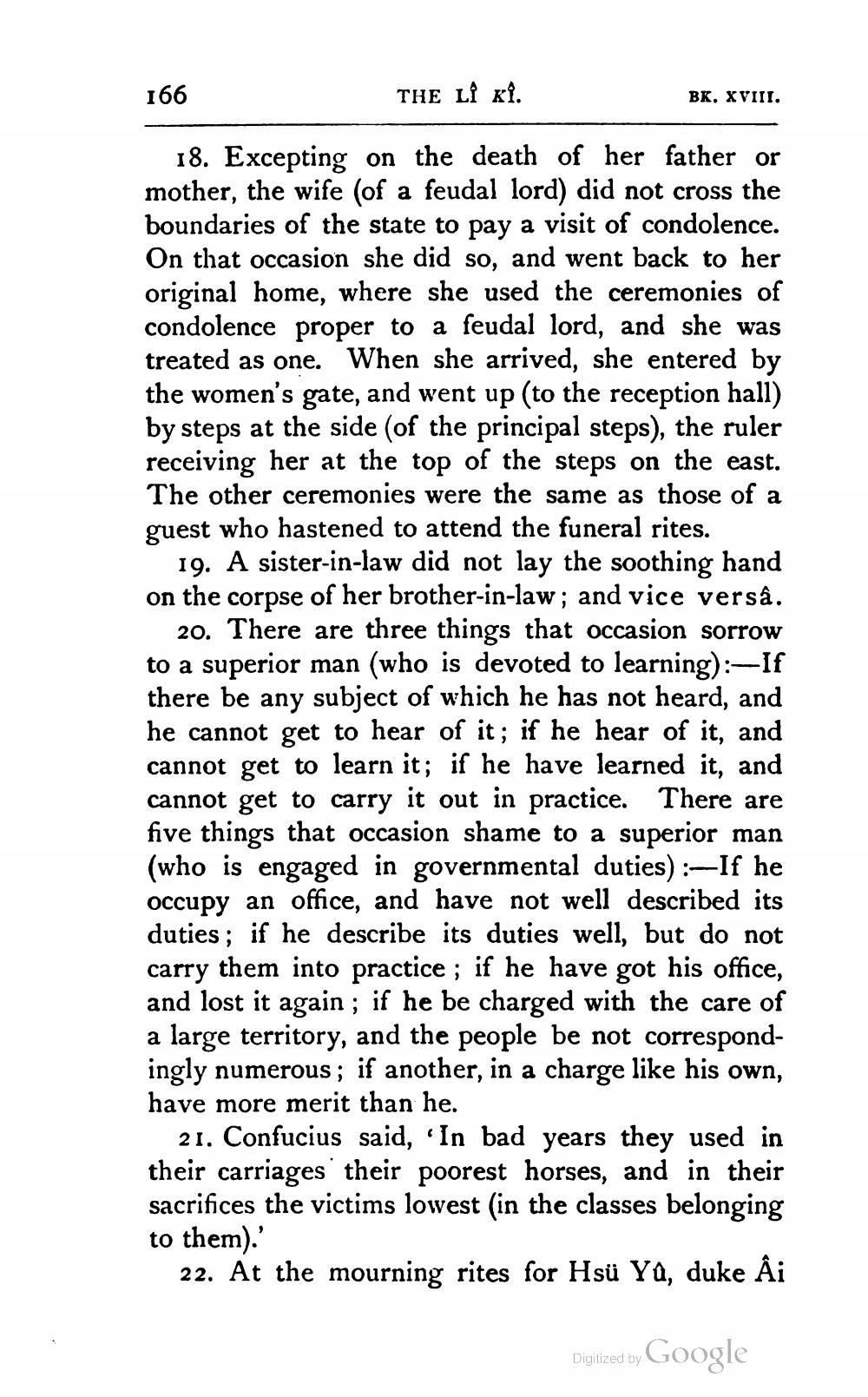________________
166
THE LÎ ki.
BK. XVIII.
18. Excepting on the death of her father or mother, the wife (of a feudal lord) did not cross the boundaries of the state to pay a visit of condolence. On that occasion she did so, and went back to her original home, where she used the ceremonies of condolence proper to a feudal lord, and she was treated as one. When she arrived, she entered by the women's gate, and went up (to the reception hall) by steps at the side (of the principal steps), the ruler receiving her at the top of the steps on the east. The other ceremonies were the same as those of a guest who hastened to attend the funeral rites.
19. A sister-in-law did not lay the soothing hand on the corpse of her brother-in-law; and vice versa.
20. There are three things that occasion sorrow to a superior man (who is devoted to learning):- If there be any subject of which he has not heard, and he cannot get to hear of it; if he hear of it, and cannot get to learn it; if he have learned it, and cannot get to carry it out in practice. There are five things that occasion shame to a superior man (who is engaged in governmental duties) :-If he occupy an office, and have not well described its duties; if he describe its duties well, but do not carry them into practice ; if he have got his office, and lost it again ; if he be charged with the care of a large territory, and the people be not correspondingly numerous; if another, in a charge like his own, have more merit than he.
21. Confucius said, “In bad years they used in their carriages their poorest horses, and in their sacrifices the victims lowest (in the classes belonging to them).'
22. At the mourning rites for Hsü Ya, duke Âi
Digitized by Google




